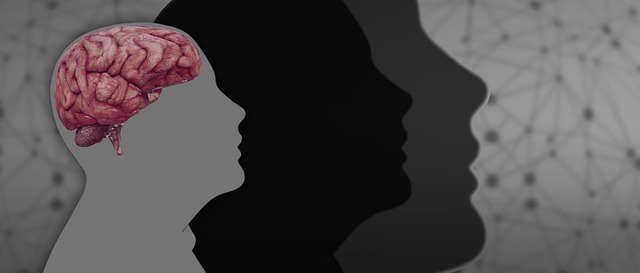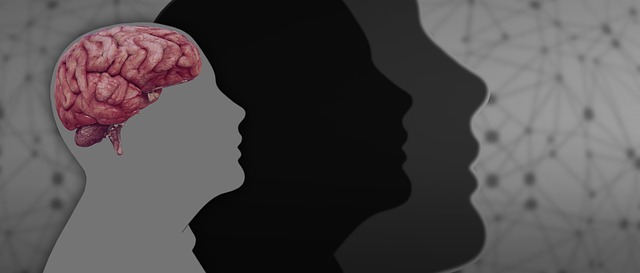Aurora Postpartum Depression Therapy focuses on Emotional Intelligence (EQ) as a core strategy for managing PPD. By combining empathy-building techniques, advanced technology, and personalized approaches, they offer an innovative treatment method. This includes identifying emotional patterns through algorithms, providing tailored Empathy Building Strategies, and delivering crisis intervention guidance. Aurora's approach emphasizes self-awareness development, active listening, mindfulness practices, and journaling to enhance coping skills, stress management, decision-making, and resilience. Their methods foster a sense of community and cultural sensitivity in mental healthcare, ensuring accessible trauma support for new mothers.
Emotional intelligence (EI) is a powerful tool for navigating life’s challenges, especially in promoting mental health. This article delves into the multifaceted aspects of EI development, highlighting its profound impact on well-being. We explore strategies like Aurora postpartum depression therapy, which focuses on identifying and addressing emotional hurdles. By enhancing self-awareness and empathy, individuals can build resilience and strengthen connections. Active listening, a key component of EI therapy, is examined as a vital skill for effective communication.
- Understanding Emotional Intelligence and its Impact on Mental Health
- Identifying and Overcoming Postpartum Depression with Aurora Therapy
- The Role of Self-Awareness in Building Resilience
- Enhancing Empathy: Connecting with Others on a Deeper Level
- Practicing Active Listening: A Key Component of Emotional Intelligence Therapy
Understanding Emotional Intelligence and its Impact on Mental Health

Emotional intelligence (EQ) is a vital aspect of mental health and overall well-being. It refers to one’s ability to recognize, understand, manage, and effectively utilize their own emotions as well as those of others. This complex skill set includes self-awareness, self-regulation, motivation, empathy, and social skills, all of which contribute to healthier relationships and improved decision-making. In the context of new parents, emotional intelligence can play a significant role in managing the unique challenges they face, such as postpartum depression (PPD).
For mental health professionals, especially those specializing in postpartum support like Aurora Postpartum Depression Therapy, understanding EQ is crucial for risk management planning. By incorporating empathy building strategies into their practice, therapists can enhance their clients’ emotional intelligence, thereby improving outcomes and promoting mental wellness. This approach not only benefits individuals struggling with PPD but also equips them with tools to navigate life’s emotional landscapes more effectively, fostering resilience and overall mental health.
Identifying and Overcoming Postpartum Depression with Aurora Therapy

Many new mothers experience postpartum depression (PPD), a condition characterized by intense sadness and exhaustion that can significantly impact daily life. Traditional treatments like therapy and medication often involve lengthy processes and may not be readily accessible to all. Aurora Postpartum Depression Therapy offers a revolutionary approach, combining advanced technology with compassionate care to address PPD effectively. This innovative method identifies specific emotional patterns associated with PPD using sophisticated algorithms, providing personalized Empathy Building Strategies tailored to each individual’s needs.
The therapy sessions are designed to help mothers overcome symptoms by exploring and processing their emotions in a safe environment. Trained professionals offer Crisis Intervention Guidance, teaching valuable coping mechanisms and resilience-building techniques. Unlike traditional therapy, Aurora Therapy is efficient, often yielding faster results due to its targeted nature. By combining technology with human connection, this method ensures Trauma Support Services that are both effective and accessible for those struggling with PPD.
The Role of Self-Awareness in Building Resilience

Developing self-awareness is a cornerstone in building emotional intelligence and resilience, especially for individuals navigating challenges like postpartum depression. Aurora Postpartum Depression Therapy emphasizes this aspect as it forms the basis for personal growth and effective coping strategies. By cultivating self-awareness, one gains a profound understanding of their emotions, triggers, and patterns of thinking. This introspective practice allows individuals to recognize when they’re facing difficult feelings, enabling them to respond rather than react impulsively.
Self-care practices, such as mindfulness and keeping a journal, can enhance self-awareness. Encouraging positive thinking and focusing on mental wellness through these means helps individuals better manage stress and emotional turmoil. This increased awareness then translates into improved decision-making, enhanced relationships, and a greater ability to bounce back from setbacks, fostering overall resilience.
Enhancing Empathy: Connecting with Others on a Deeper Level

Empathy is a cornerstone of emotional intelligence and enhancing this skill can lead to profound connections with others. It involves understanding and sharing someone else’s feelings, which is crucial in building strong relationships. Through empathy, individuals can foster a sense of belonging and create supportive environments, especially in diverse communities. For instance, cultural sensitivity in mental healthcare practice significantly benefits patients like those experiencing Aurora postpartum depression. Healthcare professionals who demonstrate empathy and an awareness of different cultural backgrounds can offer tailored support, ensuring every patient receives the most effective treatment.
Developing empathy is not limited to therapeutic settings but can be cultivated through various means. Public awareness campaigns development focused on emotional well-being encourages open conversations about mental health issues. Mindfulness meditation practices have also shown to enhance empathetic abilities by promoting self-awareness and a deeper understanding of one’s emotions, allowing individuals to better recognize and connect with the feelings of others.
Practicing Active Listening: A Key Component of Emotional Intelligence Therapy

In Aurora Postpartum Depression Therapy, active listening is a powerful tool for fostering emotional intelligence. This technique involves fully concentrating on an individual’s words and feelings, reflecting back what has been said to ensure understanding, and responding in a way that validates their emotions. By practicing active listening, therapists create a safe space where clients feel heard and respected, encouraging them to explore and express their thoughts and emotions openly.
This process is not just about hearing the words; it’s about comprehending the underlying messages and emotions. It helps individuals develop coping skills, enhances self-awareness, and improves their ability to manage stress and practice mindfulness meditation. Over time, active listening contributes to building strong therapist-client relationships, which are crucial for navigating complex emotional landscapes and promoting healing.
Emotional intelligence is a powerful tool for enhancing mental well-being, and as evidenced by techniques like Aurora postpartum depression therapy, there are effective strategies available to support individuals in navigating their emotional landscape. By fostering self-awareness, empathy, and active listening skills, people can build resilience, connect more deeply with others, and ultimately lead happier, more fulfilling lives. This journey of emotional growth is accessible to all, encouraging us to embrace our emotions as valuable insights into our inner world.













